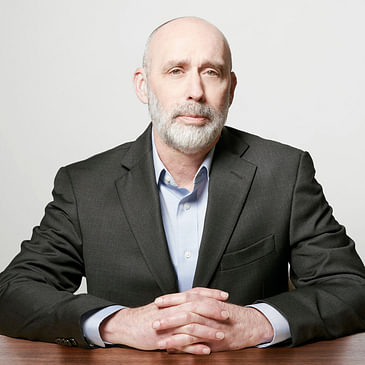It’s been said that healthcare in this country will not be transformed because of some incremental government policy, nor will this industry transform because of some tech company who techs the crap out of healthcare.
It’s been said that the only way the healthcare industry in this country is going to fundamentally change is vis-à-vis a seismic shift in the way Americans view the healthcare industry in their understanding of what is going on and the extent to which it directly impacts lives. You and I, all of us, have heard pundits say every year for a decade (at least) that this revolution is a-comin’ and that this year … no más. Americans cannot afford to pay any more in premiums or out of pocket. We have reached the brink.
And year after year, we’ve discovered that, in fact, Americans as patients, members, and taxpayers can pay more and are willing to do so. Well, maybe right now we are actually cresting the chop. Medicare can now negotiate drug prices legislation. Maybe it’s a bit of a watershed moment here. In this healthcare podcast, I’m talking with Mark Miller, PhD, EVP of healthcare at Arnold Ventures; and this is what we talk about today: the why now—the why, all of a sudden, after years of talking and griping and nothing happening, how right now, what constellation of factors transpired that enabled Medicare drug price negotiation to become law.
You need to listen to the show to get the context, but here’s the seven main reasons by my counting that Mark Miller talks about in this episode:
- The sensitivity of the public to just healthcare costs in general, Pharma being an easy-to-spot component of those healthcare costs
- Sensitivity of policy makers to Pharma’s R&D claims, and non-industry-sponsored information coming out that tempers some of those research and development claims that Pharma has been making
- Sensitivity that innovation isn’t a homogenous broad stroke when it comes to new drugs. There’s a difference between breakthrough innovations versus me-too-type drugs. Consider some new combination drug that’s, I don’t know, two generics and costs $2000 a month. There’s eyes on that kind of stuff, and if Pharma’s reputation travels in an industry-wide block, this compounds our #3 point here.
- Sensitivity of innovation in the future versus people getting access right now to today’s innovations. If too many people (ie, voters) can’t get access to today’s meds, it’s a reach to expect them to worry too much about their future selves where, in all likelihood, they are thinking that they still wouldn’t have access to the drugs.
- The landscape shifted, but pharma talking points did not—and the result was labeled “tone deaf” by some.
- Voters wanted aggressive actions as a result of the aforementioned constellation of factors, and a majority of Congress people responded and either voted yes or didn’t protest overly hard, even if they didn’t.
- Patient voices became more sophisticated. While they still might have issues with PBMs (pharmacy benefit managers) and/or insurance carriers, there’s a growing perception that the story here is more nuanced and Pharma is in that mix.
This is what we talk about in this episode: the why now, exactly and specifically. So thrilled to have had this conversation with Mark Miller, who has had, and continues to have, such a storied career.
In brief, Mark Miller ran MedPAC (Medicare Payment Advisory Commission) for 15 years. That’s a big deal. He also has held other roles at CMS and the Urban Institute. Now, Mark is at Arnold Ventures, as aforementioned, which is a philanthropic organization. He oversees Arnold’s work in healthcare.
One last thing: The legislation that just passed also includes a few other parts that impacts drugs. A big one is limiting the catastrophic Medicare Part D out-of-pockets to beneficiaries to $2000. And then there’s also an inflation rebate. So, there’s a rebate back to Medicare if Pharma raises its prices faster than the inflation rate.
You can learn more at arnoldventures.org.
 Mark E. Miller, PhD, leads Arnold Ventures’ work to lower the cost and improve the value of healthcare. He has more than 30 years of experience developing and implementing health policy, including prior positions as the executive director of the Medicare Payment Advisory Commission, assistant director of Health and Human Resources at the Congressional Budget Office, deputy director of health plans at the Centers for Medicare and Medicaid Services, health financing branch chief at the Office of Management and Budget, and senior research associate at the Urban Institute.
Mark E. Miller, PhD, leads Arnold Ventures’ work to lower the cost and improve the value of healthcare. He has more than 30 years of experience developing and implementing health policy, including prior positions as the executive director of the Medicare Payment Advisory Commission, assistant director of Health and Human Resources at the Congressional Budget Office, deputy director of health plans at the Centers for Medicare and Medicaid Services, health financing branch chief at the Office of Management and Budget, and senior research associate at the Urban Institute.
04:45 Why did Medicare’s ability to negotiate on drug pricing happen now?
06:35 What’s different about the drug market today that allowed Medicare to gain the ability to negotiate drug pricing?
12:08 How has innovation played into drug price negotiations?
12:40 “If you limit profits, you can end up limiting innovation.”
14:03 Why was the distinction between more drugs and innovative drugs important to changing the landscape of the drug market?
15:49 More versus new and future versus now in the drug market.
19:59 “As the landscape was shifting, Pharma didn’t shift with it.”
23:00 How did voters change the landscape in drug pricing?
24:39 “Pharma did not have exclusive control over the patients’ voice.”
29:59 “The industry would largely like to just stick with the patents that they have.”
30:16 “Of course, it’s competition that ultimately drives innovation.”
31:30 “This is an exquisitely complicated market.”




